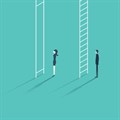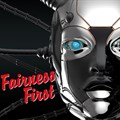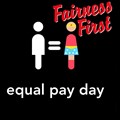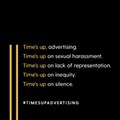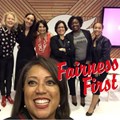#FairnessFirst: The end of the 'inclusion, equality and diversity' talk as we know it?
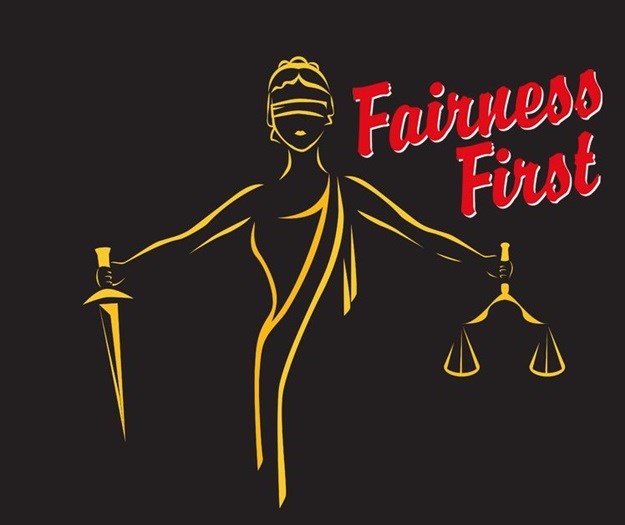
We constantly aim for transformation within the creative and tech industries in particular, and applaud when a move is made that finally flips the script on the ‘old white male’ leadership perspective so common across the globe.
But a number of disparate news articles brought the ‘inclusion, equality and diversity’ ideals into question last week.
In the first to grab my eye, Jon Evans wrote on TechCrunch about ‘’giving up on diversity and inclusion”.
The article is based on his feedback of a talk by Arlan Hamilton of Backstage Capital, she who famously “built a venture capital fund from the ground up, while homeless,” in which she shares that she will no longer talk publicly about diversity and inclusion as of 2019.
Evans explains Hamilton’s motivation in a nutshell:
…Diversity and inclusion have become to the tech industry as human resources is to a big company; a fig leaf there to protect the status quo, not to improve it.That may well be true. After all, ‘equity’ is a more inclusive outcome than 'equality'.
Happy Monday Everyone! #equality #equity pic.twitter.com/E1TFSL8HS1
— Jenny Goulding (@AgileHRJenny) April 30, 2018
Actions speak louder than words, especially in business.
Dealing with diversity fatigue and ‘reverse discrimination’
So what’s really going on here? HR Dive calls it ‘diversity fatigue’.
Based on Atlassian’s 2018 diversity report, which explores the state of diversity and inclusion in US tech, in particular, it seems tech companies readily acknowledge that the industry has a reputation for sticking to the stereotype, yet haven’t made significant progress in building more balanced teams to remedy this.
That’s largely due to tiredness setting in over the ‘talk but no action’ regarding diversity and inclusion – a sentiment that holds true whether you’re based in Silicon Valley, Silicon Savannah or Silicon Cape.
Really? That's the excuse yall gonna use? https://t.co/yzqlkeJP6I https://t.co/6b4XVdVbKO
— Dar'shun Kendrick (@TheDiversityAct) May 3, 2018
Interestingly, the Atlassian study finds that diversity and equality or D&I specialists are in demand at the moment, a sign that there’s still every intention of getting the picture back into balance when it comes to both gender and race.
From niche thinking to mainstream to action
That’s why PwC Economics analysed the behavioural measures that bring gender equality to emerging tech. The article 16 nudges for more #WomenInTech highlights the fact that organisations, schools and universities need to work together to change entrenched perceptions as an important initial step towards weighing the imbalance.
It’s a growing collective consciousness that applies across borders and industries. In a seemingly separate article that I stumbled upon last week, titled ‘Equality is a mediocre goal. Aim for progress’, on the current healthcare debate, Bloomberg states, “If inequality is a corollary of innovation, then policymakers must choose their priorities carefully.”
That’s because, “If we enter the future being able to cover most medical treatments with reasonable equality, that would be a sign we failed at the task of progress.”
Quite the interesting thought.
Progress and true change beyond merely filling quotas are the ultimate end goal.
Gender equality is not a quota https://t.co/cXin89JHX1
— Bo Jangles (@BoJangular) May 3, 2018
Gender quotas at board level in Europe have done little to boost corporate performance or to help women lower down: ten years on from Norway’s quota for women on corporate boards https://t.co/onr9OFOQiD via @TheEconomist
— STEMM Equality (@STEM_Gender) May 2, 2018
When everyone is seeking the same diminishing prize by following the same formula in the same way, the real rewards are inevitably elsewhere. There are other, ancillary veins yet to be mined; but they require a different approach. Different markets. Different values. Different networks. Different mind sets, informed by different life experiences.So diversity, equality and inclusion are indeed crucial, but the way we go about them needs to change.
Methinks Maya Angelou said it best: "If you don't like something, change it. If you can't change it, change your attitude."
After all, “Nothing will work unless you do.” For now…
Read more:












